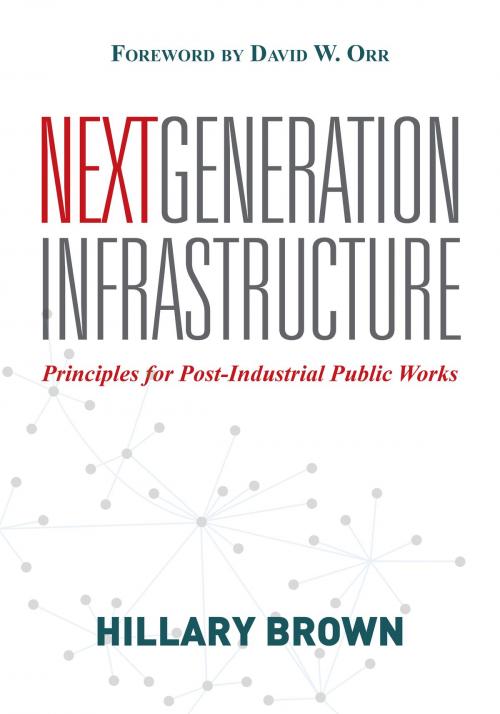Next Generation Infrastructure
Principles for Post-Industrial Public Works
Nonfiction, Art & Architecture, Architecture, Planning| Author: | Hillary Brown | ISBN: | 9781610912020 |
| Publisher: | Island Press | Publication: | May 15, 2014 |
| Imprint: | Island Press | Language: | English |
| Author: | Hillary Brown |
| ISBN: | 9781610912020 |
| Publisher: | Island Press |
| Publication: | May 15, 2014 |
| Imprint: | Island Press |
| Language: | English |
The 2007 bridge collapse in Minneapolis-St. Paul quickly became symbolic of the debilitated interstate highway system—and of what many critics see as America’s disinvestment in its infrastructure. The extreme vulnerability of single-purpose, aging infrastructure was highlighted once again when Hurricane Sandy churned its way across the northeast United States. Inundating New York City’s vital arteries, floodwaters overwhelmed tunnels and sewers; closed bridges; shut down mass transit; curtailed gas supplies; and destroyed streets, buildings, and whole neighborhoods. Next Generation Infrastructure takes a critical but ultimately hopeful look at how our infrastructure networks can be made more efficient, less environmentally damaging, and more resilient. Brown argues that, if we're to chart a course for global sustainability, we must begin to design, regulate, and finance infrastructure that decouples carbon-intensive and ecologically harmful technologies from critical infrastructure systems, namely the essential systems for contemporary society: water, wastewater, power, solid waste, transportation, and communication. The book highlights hopeful examples from around the world, ranging from the Mount Poso cogeneration plant in California to urban rainwater harvesting in Seoul, South Korea, to the multi-purpose Marina Barrage project in Singapore. Brown encourages us to envision infrastructure within a larger economic, environmental, and social context, and to share resources across systems, reducing costs and extending benefits. This is a must read for professionals and students interested in a more resilient urban future including urban designers, architects, urban planners, urban policymakers, landscape architects, and engineers.
The 2007 bridge collapse in Minneapolis-St. Paul quickly became symbolic of the debilitated interstate highway system—and of what many critics see as America’s disinvestment in its infrastructure. The extreme vulnerability of single-purpose, aging infrastructure was highlighted once again when Hurricane Sandy churned its way across the northeast United States. Inundating New York City’s vital arteries, floodwaters overwhelmed tunnels and sewers; closed bridges; shut down mass transit; curtailed gas supplies; and destroyed streets, buildings, and whole neighborhoods. Next Generation Infrastructure takes a critical but ultimately hopeful look at how our infrastructure networks can be made more efficient, less environmentally damaging, and more resilient. Brown argues that, if we're to chart a course for global sustainability, we must begin to design, regulate, and finance infrastructure that decouples carbon-intensive and ecologically harmful technologies from critical infrastructure systems, namely the essential systems for contemporary society: water, wastewater, power, solid waste, transportation, and communication. The book highlights hopeful examples from around the world, ranging from the Mount Poso cogeneration plant in California to urban rainwater harvesting in Seoul, South Korea, to the multi-purpose Marina Barrage project in Singapore. Brown encourages us to envision infrastructure within a larger economic, environmental, and social context, and to share resources across systems, reducing costs and extending benefits. This is a must read for professionals and students interested in a more resilient urban future including urban designers, architects, urban planners, urban policymakers, landscape architects, and engineers.















